Edmundo González strengthens his global support as elected president of Venezuela: will it be enough to achieve a transition of power?
As January 10 approaches – the day you should take inauguration of the new president of Venezuela for the period 2025-2031–, the uncertainty about a possible resolution of the political conflict in the country, Far from disappearing, it gains more strength.
For now, there seems to be clarity regarding the direction that most of the international community will take: disowning, for the second time, Nicolás Maduro as the new president of the country. However, the international position on whether to recognize the opponent Edmundo González Urrutia as the winner and elected president of the country after the results of the elections on July 28.
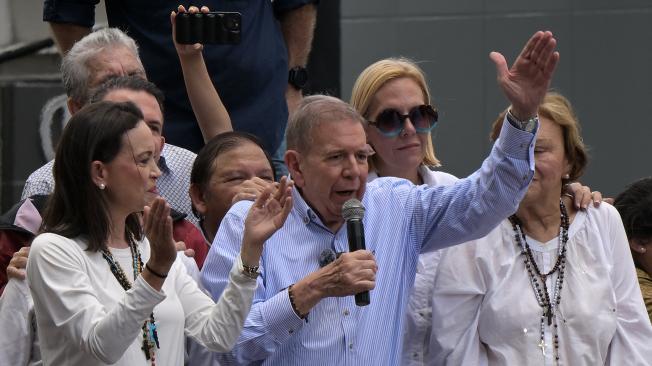
María Corina Machado and Edmundo González in the mobilizations in Caracas. AFP Photo
With 7,303,480 votes obtained by the opposition candidate compared to 3,316,142 votes for Maduro, according to figures demonstrated by González through the collection, digitization and publication on the internet of 25,073 minutes equivalent to 83.50 percent of them, and in the absence of the ruling party exposing the official minutes , the Venezuelan opposition, led by Maria Corina Machadohas dedicated itself in recent months to seeking support from the international community.
Among other spaces, the minutes were taken to the Carter Center at the OAS, to the Colombian Senate and, more recently, to the congresses of Chile and Argentina.
Without this crusade, the position – late but firm – of United States, which this week recognized Edmundo González as the elected president of Venezuela after four months.
A position that, according to experts, took flight after the resounding electoral loss of the Democrats against Donald Trump. In fact, Washington arrived a little late to the recognition, since the Spanish and European parliaments had already done so in September.
The reaction of the White House, which assured that the delay was due to the fact that they expected Maduro to change his mind and accept his defeat, was joined by Italy, whose Prime Minister Giorgia Meloni made the recognition official, as did Ecuador, led by Daniel Noboa.
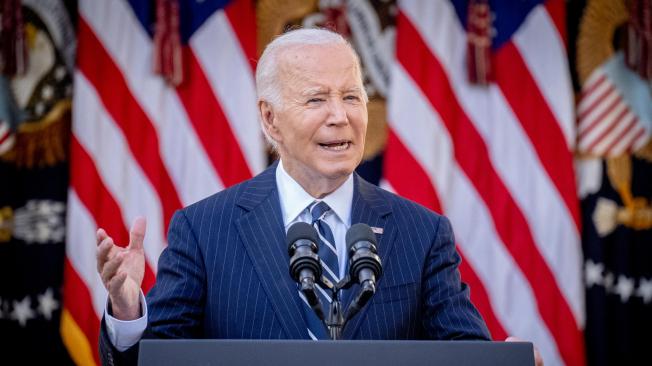
This week the United States recognized Edmundo González as the elected president of Venezuela. Photo Getty Images via AFP
In a striking way, the French president, Emmanuel Macron, took advantage of the tribune of the Chilean Congress, on his tour of several Latin American countries, to say: “In Caracas, we are present with a clear position: there must be total transparency with the presidential elections of last July”, but did not take the step of its Italian neighbors.
“Macron has served as an interlocutor between the Venezuelan opposition and the government, perhaps that is why he tries to take care of his speech and not yet take a position in favor of the recognition of Edmundo González,” a source linked to Chavismo told this newspaper.
In any case, particularly The American recognition of the triumph of González – exiled in Spain after the harsh repression against him – provides encouragement to the opposition when it seems that many things will depend on the attitude taken by Donald Trump’s administration.
Senator Rick Scott met this week, electronically, with María Corina Machado and assured that “Maduro’s days are numbered.”
“We think and want to believe that a hard line against Maduro will come. It is bad business not to do it, since Maduro does not keep his commitments. Why believe him now?” Edward Rodríguez, political analyst and consultant, tells EL TIEMPO.
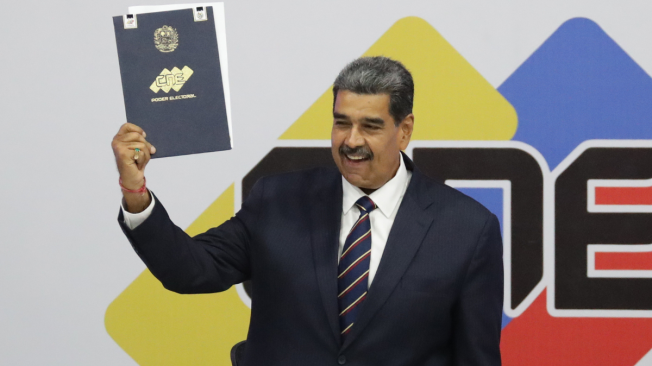
The policy towards Nicolás Maduro will depend on the new administration of Republican Donald Trump. Photo EFE
Rodríguez, who was also Juan Guaidó’s press officer and communications chief of the National Assembly, when asked if a scenario similar to 2019 would be repeated when Guaidó was recognized by more than 60 countries as the interim president of Venezuela, considered that , at this moment, “we are in another stage.” “Edmundo González starts from an election where the opposition was able to demonstrate that it won an election.”
While Guaidó was sworn in as president based on article 233 of the Constitution, González does so with electoral support.
“Although I do not see González taking over as president from the outside, what will be clear is that the Maduro government will have a very great illegitimacy of origin,” a diplomatic source commented to this newspaper.
In this regard, González himself indicated this week that he hopes to return to his country to be sworn in as president. and that, in no way, will it do so outside of Venezuela.
And even those closest to Maduro are aware of the illegitimacy of his victory. Colombia and Brazil have insisted on a post-electoral solution, although in the end it did not see the light of day and caused anger, apparently, more in Brasilia than in Bogotá.
Brazil, in its insistence that Maduro present the minutes to prove his victory, vetoed him in the Brics and prevented his entry into the bloc. For its part, Colombia limited itself to official statements in which it insists that the minutes be shown.
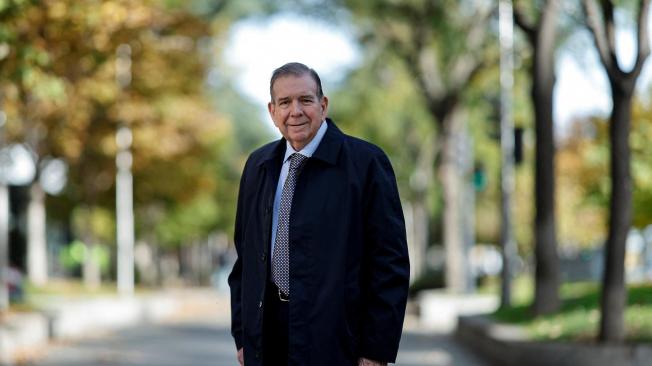
The Venezuelan opponent Edmundo González Urrutia. AFP Photo
Chavismo clings to force and unfriendly alliances
Although Nicolás Maduro met with his Russian counterpart, Vladimir Putin, in the middle of the Brics summit in October, that did not earn him access to the bloc of which Brazil, China, South Africa and others are also part.
However, Putin recognized Maduro as president and congratulated him on his electoral victory.
On other shores, Maduro took advantage of the then tour to strengthen his relationship with Iran, in his insistence on friendship with the non-Western world.
The Chavista leader affirmed that his government opens a new stage in the “powerful alliance” with Iran after the signing of new agreementswhile both countries close ranks against the United States, their common enemy.
“This tenth mixed commission opens a new chapter, a new comprehensive, powerful stage, with a map of cooperation,” said Maduro at the close of the meeting of the high-level Iran-Venezuela mixed commission, without offering details of the agreements signed. “From Venezuela and Iran we say no to hegemonism, no to imperialism, no to colonialism.”
The response seems to be a demonstration that there will be no fear of Trump’s decisions, although this week it emerged, as reported by the newspaper The Washington Post, that Maduro sent emissaries to meet with representatives of the newly elected president.
According to the newspaper, The proposal of the Caracas envoys consisted of relief from sanctions in exchange for accepting the deportation of Venezuelan migrants, to which the Americans immediately refused.
In October last year, after intense talks, Caracas and Washington agreed on repatriation flights that were suspended earlier in the year after further sanctions were imposed on Maduro. 100 Venezuelans arrived on the first flight, but the route was from Mexico, since there have been no relations with the United States since 2019.
However, the Minister of the Interior and Justice of Venezuela, Diosdado Cabello, declared: “These people are facing the most perverse empire and I can say that they cannot defeat us.”
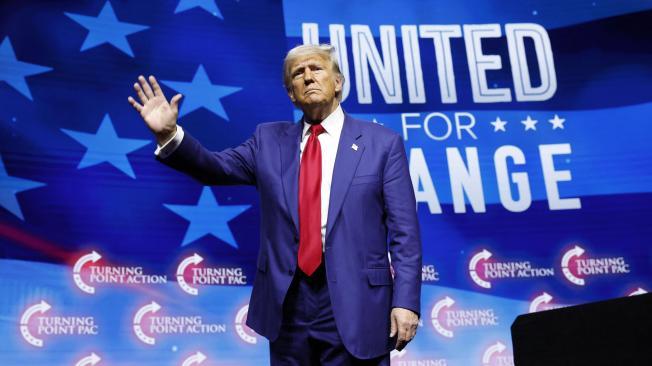
According to US media, Maduro sent emissaries to meet with representatives of the newly elected president. Photo Getty Images via AFP
Cabello has insisted that there is no possible dialogue with sectors of the opposition. Which added to the fact that The National Assembly approved in the first discussion the Simón Bolívar law to disqualify opponents for 60 years, in response to the also called Bolívar law approved in the US Senate to block business with any entity or person that has relations with Maduro.
In the midst of the uncertainty, possibly clarified after January 10, even the signals that Donald Trump has given with the appointments in his cabinet “demonstrate that There would be a hard line against the governments of Venezuela, Cuba and Nicaragua, in this case the one that concerns the Venezuelans and that generates panic in Maduro’s environment is the appointment of Senator Marco Rubio as Secretary of State,” insists consultant Edward Rodríguez.
For the historian of the Central University of Venezuela, Pedro Benítez, everything indicates that The Trump administration will have a harder line towards the regimes of Cuba, Nicaragua and Venezuela.
And like Rodríguez, he considers that the Guaidó “episode” “is ruled out” because even Edmundo González himself has said so. What seems to be happening is “a chain of recognition of González as the winner of the presidential election on July 28.”
For now, María Corina Machado is still in hiding, according to a recent interview with The New York Times, where she points out that in the last three months she has seen practically no one, but insists that she is convinced of her fight.
However, it is clear that it will not be able to remain hidden forever, especially if Maduro – as it seems – continues to cling to power. A situation that also keeps more than 2,000 people imprisoned, including opposition leaders, civil society that protected minutes, children and there is even talk of about 300 soldiers, according to unofficial sources who highlight that he is willing to do anything to ensure six more years in the Palace. from Miraflores.
